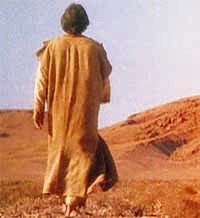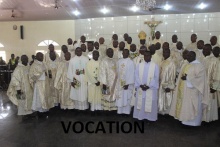
The season of advent reminds us that the Christmas is right at the corner. Apart from the spiritual preparation for Christmas, the month of December is usually choked up with so many activities such as end of year parties, Christmas Sales in the open markets and shopping malls as well as travelling to different destinations. The shops seem to have begun their ‘advent’ long before the Church. Some weeks ago people started buying Christmas decorations, shoes, clothes and gifts for beloved ones.
It is common during this season for traders to hike the prices of their goods, for transporters to jerk up transportation fares and for most people to gather as much cash as possible to squander during the festive period. During preparations for Christmas we also witness some nefarious or negative activities going on. For example, during one Christmas season a man was caught stealing and he was brought for trial before a judge,
|
|
There is no doubt that during every Christmas season there are Christmas-related crimes such as intoxication, fighting and other cases where people simply go wild and wicked in the name of Christmas. In order to help people stay focussed to the reason for the season, there emerged a famous slogan, which says: ‘Keep Christ in Christmas (KCC). To keep Christ in Christmas means paying close attention to the scriptural daily readings that are arranged for Christmas so that we can understand the meaning of the Christmas in the history of our salvation. John the Baptist plays a special role in the preparation towards the coming of Jesus Christ by calling people to repentance. John lived in the wilderness when he was preparing for the coming of the saviour. The season of Advent is an opportunity for us to have an experience of wilderness.
THE WILDERNESS EXPERIENCE
The opening lines of the gospel begins: John the Baptist appeared, preaching in the desert of Judea,’ and it continues ‘A voice of one crying out in the desert Prepare the way of the Lord,
make straight his paths.’ The wilderness from which John preached can be given different interpretations drawn from the scriptures. In simple terms, the wilderness means a desert or an uninhabited bush. John must have chosen to live and preach in the wilderness because of the spiritual significance of the wilderness. The wilderness is a place of:
1. Transformation: The wilderness is a place in which people can undergo transformation. John the Baptist chose to begin from the desert as a prophecy of the transformation, which will take place at the coming of the messiah. He seem to say that the dry land which you now experience will become springs, a pool of water and a fruitful field when the messiah comes he will transform the world and make it a better place.(Isaiah 41:18; 32:15).
2. Test: In going to the Promised Land, the Lord chose the way of the wilderness for his people as a test of their power to endure. It is a place of temptation (Hebrews 3:8) and where people experience a kind of hardship that will effect a positive change in their lives
3. Humiliation: The wilderness is also a place of humiliation, which humbles us and qualifies us for the kingdom of God. Thus the book of Deuteronomy says, the ‘Lord took you through wilderness to humble you (8:2).
4. Hunger and Thirst: It is a place where people not only experience physical hunger but people who experience spiritual hunger can understand the words of David when he exclaimed in the desert of Judah: ‘My soul is thirsty like a dry-weary land without water’ (Psalm 63).
5. Prayer: The wilderness is a place to encounter God and this explains why the Lord spoke to Moses in the wilderness of Sinai (Numbers 1:1; 9:1). Moses made a request to Pharoah to allow the Israelites to go to the wilderness to worship God. Before Jesus commenced his ministry, the spirit drove him into the desert where he prayed and fasted for forty days (Mark 1:12). When people go for retreats and spiritual recreation they experience the wilderness in which they encounter God.
6. Incorruptible: The wilderness is also a place where God’s creation (nature) is still at its best. To be in the wilderness therefore means to be distant from the corruption and confusion of the world.
7. Unpopular: The way to the wilderness is a road less travelled, but those who have chosen the way of the wilderness are those who are not after the things of the world nor after power or popularity.
8. Solitude: Being in the wilderness also means to stand alone with none but God in different moments when we are abandoned by family and friends. During this Christmas we should think of people who are in the wilderness of loneliness and spend some time with them: the sick, elderly, the bereaved who have lost spouse or children, the physically challenged, the broken-hearted and those who are homebound.
A VOICE CRYING IN THE WILDERNESS
The voice crying out in the wilderness is the voice of John the Baptist calling the people to repentance. It was a message that not many people wanted to hear. John was a man with a mission who kept crying in the wilderness to ensure that all people repent in preparation for the coming of the messiah. A voice crying in the wilderness can be the still-small voice which is inside us (our conscience) calling us to repentance. It is the Spirit of God speaking in the depth of our hearts. It is a voice crying in the wilderness for Justice. It is the voice of truth challenging our old ways of life and calling us to open a new page in our lives
The season of advent is a season in which we pass through the wilderness of repentance unto the spring of Christmas. No one who wants to grow can escape the wilderness. Some call the season of advent as the time in between, which is to say it is a season in which we celebrates his coming into the world as an infant and a season in which we wait with great expectation for the second coming. According to Karl Rahner:
‘Every year we celebrate the holy season of Advent, O God. Every year we pray those beautiful prayers of longing and waiting, and sing those lovely songs of hope and promise.’
---------------------------------------------------------------------------
2nd Sunday of Advent/ Isaiah 11:1-10; Romans 15:4-9; Matthew 3:1-12
[1] http://www.christmas-time.com/ct-jokes.htm#Strange Illness 4th December, 2010


